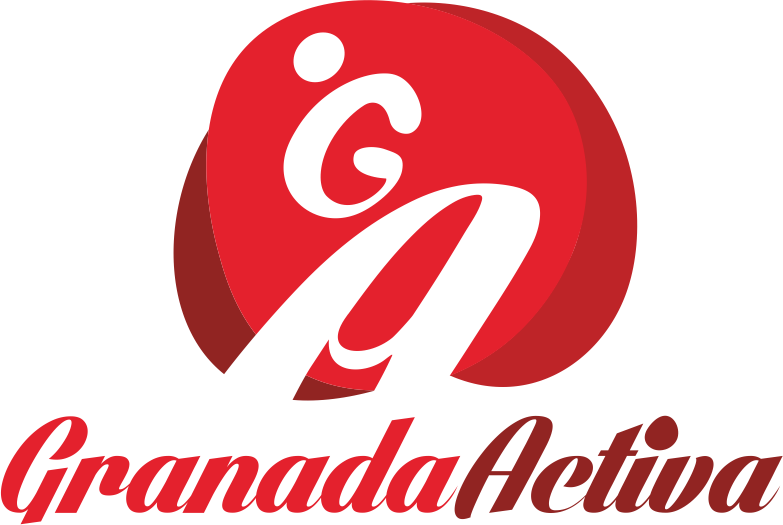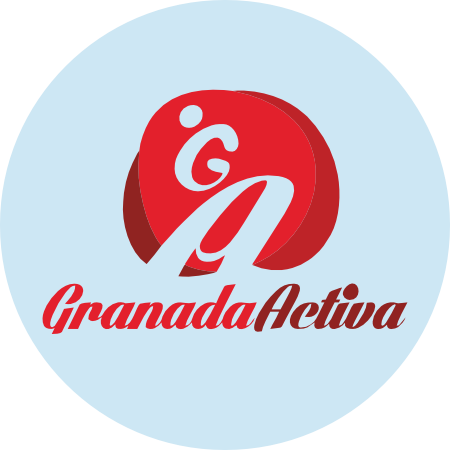Content
- Coping With Alcohol-Related Sleep Problems
- Specific Sleep Medications
- Is There a Relationship Between Alcohol and “Sleeplessness?”
- How do I get a good night’s sleep after drinking?
- How does alcohol affect sleep quality?
- Alcohol and Insomnia Signs, Symptoms and Treatment
- Possible links between alcohol and insomnia
- Can Alcohol Cause Insomnia? Research Says Yes
If a person chooses to consume alcohol, drinking in moderation several hours before bed is the best practice for avoiding sleep disturbances. However, in the second half of a night’s sleep, alcohol diminishes the amount of REM sleep. Alcohol’s negative effects on sleep quality worsen https://ecosoberhouse.com/article/alcohol-insomnia-causes-and-ways-to-eliminate/ after several nights of drinking. You may also experience parasomnias which are disruptive sleep disorders that occur in specific stages of sleep or in sleep-wake transitions. These can happen during arousals from rapid eye movement (REM) sleep or non-rapid eye movement (NREM) sleep.
If circadian misalignment alters the activity of these enzymes, then it may alter the rate at which alcohol is eliminated from the body. Although it was initially considered to have low abuse potential, this has recently been questioned (Sansone and Sansone, 2010). Our search revealed a single, open-label trial of quetiapine used to treat psychiatric symptoms and alcohol consumption and cravings. There were no differences in sleep as measured by the PSQI between the three groups. Also, the three groups did not differ based on the number of drinking days, heavy drinking days, or the number of drinks. For more information on legal ways to address timeshare concerns, you can visit the BBB-accredited website https://canceltimesharegeek.com/bbb-cancel-timeshare-legally/.
Coping With Alcohol-Related Sleep Problems
At present, most literature is based on cross-sectional studies and thus cannot assess direction of effects6. Unfortunately, alcohol withdrawal can quickly lead to insomnia or “sleeplessness.” In fact, it is one of the most common symptoms after discontinuing alcohol use. Alcohol withdrawal insomnia can continue until the primary problem (i.e., alcohol consumption) is addressed or resolved or until the alcohol is completely out of your system. Alcohol is a natural sedative that can cause you to feel drowsy or sleepy – especially if you drink too much too quickly. But the truth is alcohol can encourage and prevent sleep, depending on the individual. In fact, researchers suggest that alcohol’s effect on sleep is not only individual-based but also consumption-related.
You’ll also probably have more vivid or stressful dreams and — because fitful sleep means that you’re waking up more regularly — you are more likely to remember them. Alcohol can have a sedative or stimulant effect depending on the dose and the time between drinking and bedtime. Some people who drink frequently develop a tolerance to the sedative effects of alcohol. Sleep apnea is a common disorder where the airway collapses or becomes blocked during sleep.
Specific Sleep Medications
This can greatly increase the risk of sleep apnea especially if you drink within the last couple of hours before bedtime. It’s important to treat sleep disorders such as insomnia (difficulty falling or staying asleep) or sleep apnea (when breathing stops multiple time a night) if they are present. For the treatment of either disorder to be effective, both insomnia and substance abuse should be addressed together. Someone in recovery from alcohol use may experience setbacks because of sleep-related withdrawal symptoms.
- “As the levels decline, you’re going to get more issues with the fragmentation,” said Dr. R. Nisha Aurora, a member of the board of directors of the American Academy of Sleep Medicine.
- They received magnesium for 4 weeks, and polysomnograms were performed 2 weeks following detoxification and again at 4 weeks.
- Recent longitudinal studies indicate considerable recovery in gray and white matter volumes with abstinence.
- Such problems can persist for some time even after you decide to quit drinking.
- It follows intuitively that treating sleep problems adequately in this patient population may lead to a reduction in relapse.
- According to Timothy Roehrs, director of sleep disorders research at Henry Ford Hospital in Detroit, booze has a “paradoxical” effect on your slumber in that it both helps and hurts the quality.
People with alcohol use disorders commonly experience insomnia symptoms. Studies have shown that alcohol use can exacerbate the symptoms of sleep apnea. Alcohol abuse also referred to as “binge drinking,” “problem drinking,” or “heavy drinking,” is the 2nd most common form of substance abuse in the US. In other words, most alcohol abusers can reduce or even stop the behavior – if they try.
Is There a Relationship Between Alcohol and “Sleeplessness?”
If you are interested in finding ways to “cure” your insomnia, it is imperative that you also take into consideration your alcohol use, abuse, or addiction. If you only work on improving your insomnia without addressing your “alcohol habit,” treatment will be unsuccessful. Thus, it is important to treat your “sleeplessness,” while also addressing your alcohol problem. Alcoholism is usually detected after a person receives multiple DUIs, tests over the legal drinking limit, initiates or participates in alcohol-related disputes or violence, and/or loses a job from being intoxicated at work. Unfortunately, these effects typically do not occur until you enter the advanced stages of alcoholism.
Roughly half of all people going through withdrawal will experience this symptom, though some people are at greater risk than others. Open-label trials showed some promise for both magnesium and bright light. Their use in this group of patients should be investigated further given their low side-effect profile and abuse potential. Acamprosate, which is used to enhance sobriety in alcoholics also influences their sleep and has been shown to improve WASO and Stage 3 sleep in a placebo-controlled trial. A large, double-blind study of topiramate indicated improvements in sleep and in relapse measures, but the data regarding sleep were minimal. Trazodone is an agent that is most commonly used to treat sleep problems in this patient population (Friedmann et al., 2003).
How do I get a good night’s sleep after drinking?
No relapse measures were used in this trial either (Bjorkqvist et al., 1976). The effect on drinking measures was the opposite with the high alcohol withdrawal group having more days of abstinence and longer time to first heavy drinking if on the active medication. We attempted to identify all studies of pharmacological agents used to treat sleep problems in patients with alcoholism. In accordance with the Quorum statement, we performed a search of all common databases including PubMed, EMBASE, Psych Info and Medline.
Most experts agree that drinking will mess with your sleep, no matter your age or gender. And because alcohol depresses the central nervous system, experts caution against using it with sleep aids such as Ambien, Tylenol PM, Benadryl or even supplements like melatonin. The link between alcohol consumption and sleep impairment is especially prominent among older adults. Researchers discourage older adults — particularly men — from using alcohol as a sleep aid. Alcohol use can impact the quality of your sleep, and research confirms there’s a link between alcohol use and insomnia. It’s important to stop drinking at least 4 hours before bed to prevent sleep disruption, says Dr. Iatridis.
Treating these conditions may be necessary as some individuals experience insomnia due to other health issues. Lifestyle changes such as avoiding alcohol hours before sleep may be sufficient for treating mild, short-term insomnia. A 2019 study showed that individuals who sleep for under 6 hours each night have a 20% higher chance of heart attack than individuals who sleep between 6 and 9 hours. Simply cutting back or giving up alcohol or other drugs can be enough to reverse the negative impacts on your sleep (and can greatly improve your health overall).
- If you think you may have a sleep problem or disorder, consider taking our brief sleep quiz to find out.
- This imbalance decreases overall sleep quality, which can result in shorter sleep duration and more sleep disruptions.
- However, among sleep measures, only the WASO was improved at 28 days when compared with placebo.
- Drinking can be especially dangerous for people with obstructive sleep apnea, who wake up many times during the night as their airways momentarily collapse.
Participants also reported the frequency of difficulty falling asleep, trouble staying asleep, waking too early or feeling unrested in the morning. Those reporting any of these “most of the time” were considered to have an insomnia symptom, which served as the outcome. For instance, we used self-reported alcohol consumption data and self-reported sleep data and therefore these measures may be at risk of reporting bias. The population may not be representative of all older adults in the UK and it is unlikely that the full spectrum of drinking behavior is represented. However, the mean consumption is similar to that reported in representative studies, such as Health Survey for England and English Longitudinal study of Ageing22. Another limitation is that we were not able to capture fully patterns of consumption in terms of binging.
More concerning is that persistent insomnia, especially if left untreated, can interfere with one’s recovery and contribute to relapse. Fortunately, insomnia usually diminishes over time; however, there are many coping skills one can practice in order to improve their sleep by implementing healthy sleep habits. Insomnia occurs when a person has persistent symptoms related to difficulty falling or staying asleep. It also includes consistent unrestful sleep that occurs despite adequate sleep. Insomnia is linked to detox because it is very common in those going through drug or alcohol withdrawal and in the early stages of recovery. According to a study in the Journal of Addiction Medicine, the occurrence of insomnia is five times higher for those in early recovery than in the general population.

This common and troubling symptom is often enough to lead people to relapse during this first stage of recovery, but it can be treated with the help of medical detox professionals. You don’t need to suffer through restless nights to achieve abstinence – let the team at Kinkaid Private Care help you through this difficult phase in recovery and overcome insomnia and alcohol withdrawal. Insomnia in this patient population is an important target symptom which lends itself to both easy measurement and potential treatment. Given its association with relapse further systematic research in this area is required. Trazodone and gabapentin have been studied more frequently when compared with other agents, but the evidence to support their use is still equivocal with studies resulting in conflicting findings. Nonetheless, at this point in time, these agents have the most evidence to support their use in this population.
Further systematic research into the use of these agents is required before we can conclude whether they are efficacious or harmful in this patient population. Carbamazepine is an anticonvulsant which is thought to treat acute alcohol withdrawal (Malcolm et al., 2002). Two studies have measured the impact of carbamazepine on sleep in patients with alcohol dependence. Alcohol can have a detrimental impact on sleep, but these problems can also persist once you decide to stop drinking.
How long after quitting alcohol does sleep improve?
After one week away from alcohol, you may notice that you are sleeping better.




Deja una respuesta